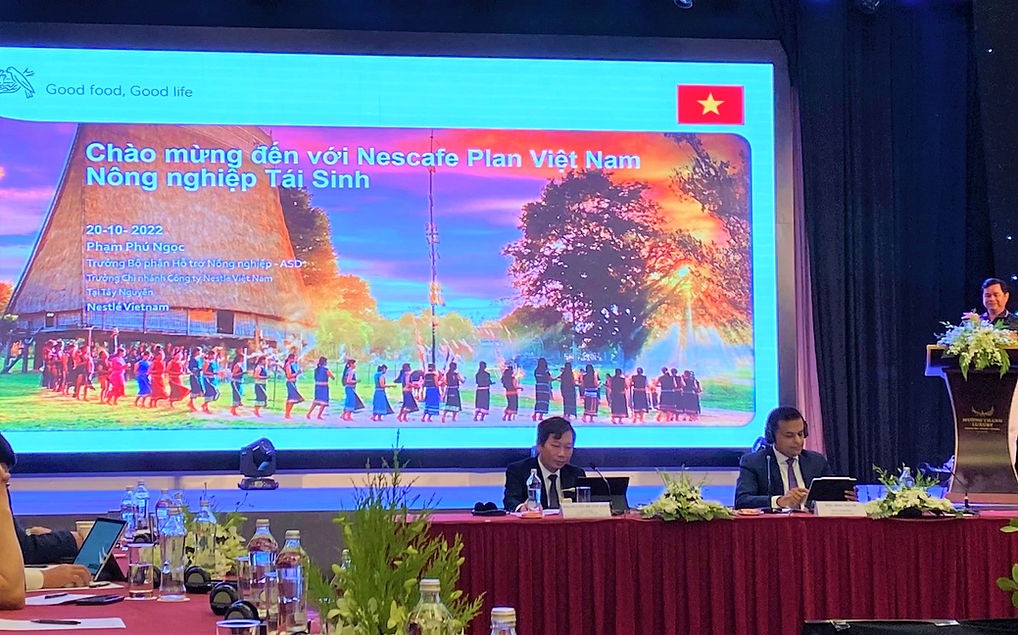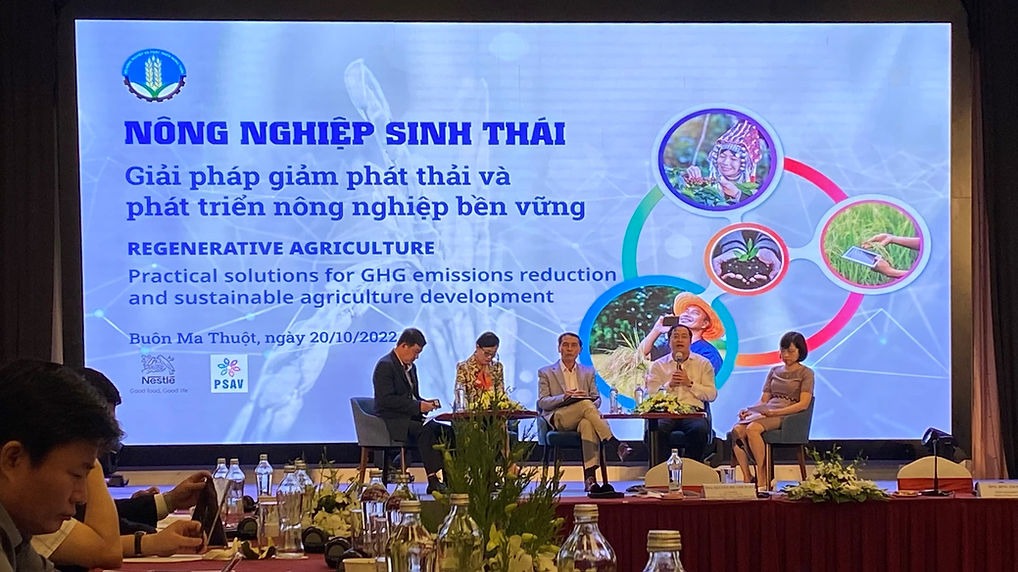On October 20th 2022, within the framework of the Partnership for Sustainable Agriculture in Vietnam (PSAV), the Ministry of Agriculture and Rural Development (MARD) and Nestlé Vietnam jointly organized a conference entitled "Regenerative Agriculture: The Practical Solutions to Reduce Emissions and Develop Sustainable Agriculture" in DakLak Province. The event was attended by Mr. Le Quoc Doanh – Deputy Minister of MARD, Mr. Vo Van Canh – Vice Chairman of Dak Lak Province and many of PSAV's partners, such as Nestlé and Croplife, as well as international organizations and government agencies.
Deputy Minister – Mr. Le Quoc Doanh firmly addressed the importance of agriculture to Vietnam and that Vietnam has made great efforts and achievements in ensuring national food security and people’s livelihood. However, agricultural production accounts for many emissions, mainly from cultivation, animal husbandry, land management, and fertilization activities.

Nestlé, the co-chair of PSAV, shared about their NESCAFE PLAN, which they have been consistently doing for the past 12 years to change how farmers do agriculture. According to Mr. Pham Phu Ngoc - Head of Nestle Vietnam's Agriculture Support Department, farmers used to harvest and sell early when the coffee beans were still unripened, resulting in a more significant profit loss. However, currently, they have taken up inter-cropping with a mixture of various plantations, namely pepper and coffee, and successfully increased their income.
In the effort to move towards more sustainable agriculture, many companies proudly introduced their projects and achievements. For example, CropLife - an international trade association of agrochemical companies- has been using drones to spray pesticides, reducing pesticide use, human forces, and farmers' exposure to chemicals. In the case of Vinh Hoan – Word's largest producer of Pangasius, they have a small-scale company that collected and processed their waste into organic fertilizer, and also the company has successfully carried out an experimental model for circular cultivation.

During the Discussion session, representatives from companies also voiced the difficulties they have encountered in this sustainable journey. Many enterprises are still struggling to make agricultural products that meet exporting standards; at the same time, farmers are facing a decrease in income which eventually leads to their leaving for better job opportunities. "There is an urgent need for more cooperation and the promotion of equal distribution even to provinces with fewer advantages." – said the Representative from Jacobs Douwe Egberts.
Mr. Nguyen Do Anh Tuan – Director General of the International Cooperation Department of MARD, appreciated the participants' opinions and shared that the Ministry will continue supporting the Public-Private Sectors' cooperation heading toward modern agriculture and civilized rural areas.